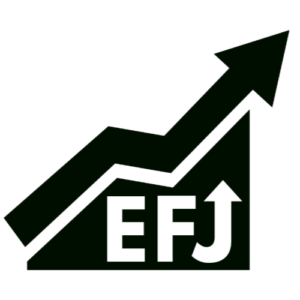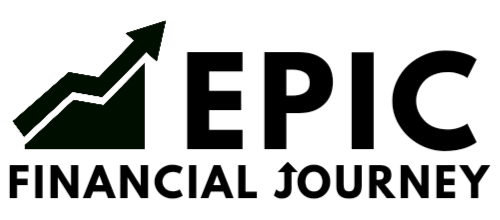Why FI: What Financial Independence Means To Us
The term “Financial Independence” or “FI” is confounding – it’s one of those nebulous phrases that has a technical definition, yet there is additional nuance since everyone has a different interpretation of what it means to them and how it may impact their lives.
A couple definitions of “Financial Independence”:
- Investopedia: Having enough wealth to live a life of comfort without the need to work.
- Wikipedia: A state where an individual or household has accumulated sufficient financial resources to cover its living expenses without having to depend on active employment or work to earn money in order to maintain its current lifestyle.
If you’ve already learned About Us or More About Us, then you know that we have both been on the path to Financial Independence for many years and consider ourselves part of the FI community. Yes, our ultimate goal has been to each achieve the technical definition of FI, but beyond that what else does Financial Independence mean to each of us?
Scout
“Financial Independence” holds a variety of connotations for me – these may be obvious to some people, but may be more subtle to others. In my view, all aspects & benefits of FI are intertwined, leading to advantages in many different areas of life. Or as I like to think about it… FI doesn’t open just one door, it opens many.
- Freedom From Work – This is probably the most obvious meaning and reason to pursue Financial Independence. Whether someone enjoys their job or not, eliminating the requirement to actively work in exchange for money is truly freeing. The obligation to constantly make money in order to survive is very stressful, both psychologically & oftentimes physically. Many people also feel trapped working a job they don’t like with the sole intent of needing money to be able to afford their lifestyle. Achieving FI may feel like a burden being removed or a huge weight being lifted. No longer needing to work obviously has financial benefits, but also emotional benefits such as being less stressed or worried. FI is the key to realizing benefits in many other areas of life beyond work (as described in the subsequent bullet points below).
In my life:
Similar to most people, my long-term goal had always been to save up enough money to leave a job/career that I was unsatisfied with and retire early. Throughout the years I had always felt stuck at my job and couldn’t leave because I had to provide for myself & my family. I felt that the only way I could ever escape was by achieving Financial Independence, so that I no longer had to actively trade my time for money at a W-2 job. This goal was reinforced even more when I first discovered the FIRE movement in 2018 and learned about others who actually did this. Indeed when I finally retired early in 2023 I felt like a bird who was released from a cage – I could do anything & everything that I ever wanted; the world was finally my oyster!
- Time Freedom – Actively working is very time-consuming. Besides the typical 40+ hours spent actually working, many people have commutes and most take at least a little time each morning to get prepared for work (showering, grooming, making lunch,etc). When there is no longer a need to actively earn money, any time previously dedicated to work can be reallocated. How this time is reallocated is personal and based on each individual’s goals & interests in life.
In my life:
For the majority of my career (except during COVID-19) I worked outside the home, at least 5 days a week, commuting 30-40 miles each way. Throwing in the additional time it took me to get ready each morning, approx 12+ hours of my day were consumed with work/work-related activities. And because I was gone all day at work, the few free hours I had each evening weren’t very enjoyable because I was so tired. Weekends were not usually restful because this time was spent catching up on household chores that were neglected during the work week such as cleaning/vacuuming, laundry, bills, grocery shopping, yardwork, etc. Leaving my 9-to-5 job has indeed allowed me to reclaim these 12+ hours each day and now I spend my waking hours as I chose instead of beholden to my employer’s schedule.
- Optionality – Both types of freedoms described above open up a whole new world of choices in various aspects of life. With regard to work, some may choose to continue working the same job for fun or enjoyment, perhaps switching to a different career that is more interesting/fulfilling (oftentimes for lower pay), volunteering, or even choosing how many hours to work instead of being stuck with the typical 40-hour workweek. Beyond work itself, anything & everything is fair game – time can be spent pursuing a hobby/passion project, traveling, hanging out with friends/family, or even simply sitting around & relaxing. Whatever someone chooses to do is okay since this freedom has been earned through Financial Independence.
In my life:
Because I was increasingly unhappy with my career and job industry, I decided that it was best for me to make a clean break instead of trying to salvage any hopes of continuing on. At the moment I’ve chosen to forego pursuing another full-time career and instead have spent time building new skills, exploring new interests, and most importantly spending increased time with my family.
- Control – With money needs taken care of, Financial Independence provides incomparable authority in almost all areas of life. There is no longer a requirement to answer to a boss or a need to work at a job for 40+ hours each week. Whatever someone chooses to do or however they spend their time is ultimately up to them – they are now their own boss and have wrestled back control of their lives. Even without fully reaching FI, having enough money saved/invested provides more self-influence instead of being beholden to the actions of others (JL Collins calls this concept “F-You Money”).
In my life:
Although I was on the path to early retirement for many years, unfortunately (and ironically) I only learned about F-You Money after I had already reached FI. If I had realized earlier the power my savings provided, I could’ve taken action to positively change my life or alleviate some of the dissatisfaction I had at work such as having the confidence to switch careers/jobs, take a sabbatical, or simply say “no” to my boss from time-to-time.
The Squire
“Financial Independence” is a term I’ve heard and thought about quite a lot. I currently enjoy my job and see myself continuing for many years to come, so I might look at it slightly differently than some others in the community. The following is what Financial Independence currently means to me.
- Self-Reliance – Without the need to be dependent on anybody else for money, one can stop worrying about their paycheck and all the strings attached that cause stress and that takes time away from other things one would prefer to do.
In my life:
I have enjoyed my jobs throughout life, including my current one, which is fine because it will take me many more years to reach Financial Independence. However, I also realize that I am very fortunate, and circumstances could change at any time. People retire, leadership changes, and roles can evolve in a matter of months. Until I am truly financially independent, I and my family will continue to be partially reliant on my paycheck and all the hours and potential stress involved. I’ve relied on others to fund my and my family’s lives, and although I may continue to work, I look forward to the day that I no longer need a paycheck.
- Goals – Many people find setting goals helpful, and when it comes to saving for retirement, Financial Independence can represent a great target to shoot toward.
In my life:
Unlike many people, I don’t mind checking in with my boss on a regular basis, to make sure we’re on the same page and where we are on various goals we’ve set, modifying them as needed. I like to have goals to work toward. It keeps me more organized and is nice to reference when I get bogged down with too many projects and need to prioritize. Financial Independence is a money goal for me that can change over time, but I like to check my progress over time and determine if adjustments to spending, saving, or my timeline need to be made.
- Giving – When there is enough money to pay for expenses and more time becomes available, one of the many ways to spend extra time and money is by giving.
In my life:
There are so many great ways to donate time and money, which our family enjoys doing. When we start to approach Financial Independence, we look forward to considering extra time and money that we will want to put toward good causes. There have been times in our lives that advice and money from others have helped us significantly, and we want to give back toward causes that we care about.
- Learning – Financial Independence can allow people to pursue interests they didn’t have time or energy for before.
In my life:
I’m on a computer most of my workday and enjoy spending my evenings and weekends with family, and of course have chores to attend to as well. There isn’t a lot of time that we set aside to learn and pursue other interests. There are a lot of things I would enjoy learning about, and my list of topics seems to be growing all the time. I would like to pursue some of these interests before I retire, but I’m looking forward to when I have more time available, and Financial Independence could be that time.
Links/Resources
- Investopedia, “Declare Your Own Financial Independence Day”
- Wikipedia, “Financial independence”
- JL Collins, “Why You Need F-You Money”
Reader Questions
- What does Financial Independence mean to you?
Leave your answers or comments below – or email us directly at info@epicfinancialjourney.com

